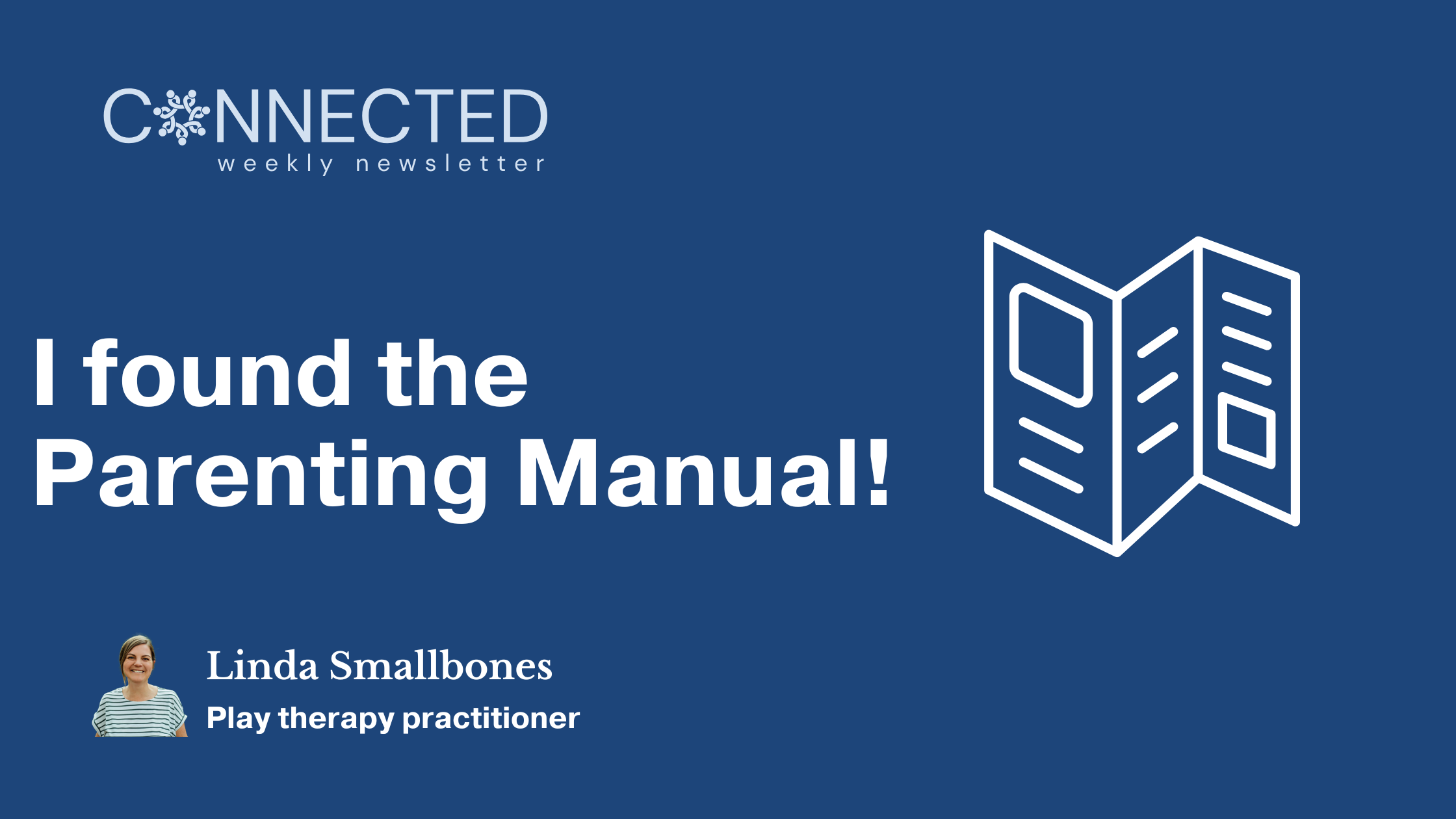I found the Parenting Manual!
What if your child IS the manual you so desperately want and feel you need in order to understand them?

I've often shared jokes with fellow parents over the years "If only there were a manual to help me know what to do with my child"...
What if your child IS the manual you so desperately want and feel you need in order to understand them?
This is not a generic manual (rather a genetic manual, ha ha!), this child is such a particular, unique, delightfully made being.
We get to learn who they are. They have their own personality and temperament. They are not a mini you or mini anyone else, they are them and they will continually evolve as they grow. It's up to us as the adults to perceive the evolutions and grow up as parents with them.
Lean into the changes with age
I once worked with a parent who did not live with their child, but had regular contact with them. They were confident in relating to the child as a very young child, they drew on their love of reading books and teaching them about the natural world around them on walks when they were little. As the child grew up into a middle-school aged child, the parent really began to flounder and was perplexed that this same child didn't want to read books together any more or go on nature walks. The child had developed sporting abilities and was quite obsessed with ball sports, something this parent had no desire or aptitude for. The parent really struggled to relate to their child in a whole new way. This can be a real issue for parents and children who have different aptitudes and interests. And, it is the adult's responsibility to make space and accept who the child is, and is becoming.

Lean into the changes with behaviour
I have sometimes seen, through the play therapy process, when a child moves from anxious patterns to a more empowered human, that their behaviour changes. They move from being very compliant, to more challenging to the status quo, maybe more boundary-testing. This can be a shock to parents, and some gear changes are needed. It doesn't always happen this way, but when it does I do celebrate. A child who has moved from feeling disempowered to empowered is a wonderful thing! And, they need to be lovingly shown what to do with their new found freedom! Think about it, the rules of engagement are so different when one feels free and empowered. It becomes safe to test boundaries and try new behaviours out. As parents experiencing this type of change, we get to learn how to parent this in this.
What age is your child?
Each child has a chronological age, and also an emotional age. These may be different, or quite similar. For example, a child turning 13 has the chronological age of 13 years, but emotionally they play and interact with others as a typical 11 year old would. Maybe we could think of it as each person having younger and/or older parts to them. The younger part of this 13 year old still wants to engage in pretend play, the older part wants to dress like a teenager and blushes when she sees a cute boy. This mix in chronological and emotional ages can often be seen fairly clearly in neurodiverse children (children with autism, ADHD).
To get to know your manual (I mean child), think about their chronological and emotional age(s). Maybe you catch yourself thinking "they should be doing this at their age."? It's good to be curious and to question where you see them struggling behind their peers, but don't assume they have to be on the same trajectory as everyone else.

Attunement
Learning how to read your "manual" is a process driven by attunement. Attunement is about noticing. Our children constantly give us cues, the child does something that is trying to elicit a particular response from a parent. For example, after a play therapy session if a parent and I speak for too long and the child is getting bored they start to give their parent cues such as tugging on their clothing, interrupting us, sighing in frustration - everything they can to cue their parents "Hey, stop talking I want to GO now!"
We could also call cues, clues! So, if your toddler is being ratty, what are the clues they are laying down for you? Attunement is about looking beyond behaviour and noticing; why this behaviour? why now? I wonder what they need?
I had a little guy come and see me for play therapy. He was settling in so well, we had built a good rapport and then suddenly one week he struggled to separate from his mom, he was tearful and anxious the whole session. Afterwards, he passed out on the couch at home and in the next couple of days developed flu symptoms. His anxiety and unsettledness were actually present to signal his body wasn't completely well. Sometimes we can only fully see these things in hindsight. But it is good to think "what else could be going on?" And over time, we learn to read the clues better and better because in general, there will be patterns we can start to recognise.

I have written about this before here. And in that post I said;
Children don’t come with manuals, because the intentional work of parenting is to lean in and listen really closely in order to really hear and understand what is going on for them. This is a process called attunement.
The joy in all relationships is getting to know the other person, and maybe especially our children as we have the privilege of seeing them grow!
With December holidays coming up, I highly recommend having a screen time plan. I love that Christy Herselman is offering this on 27 November.
